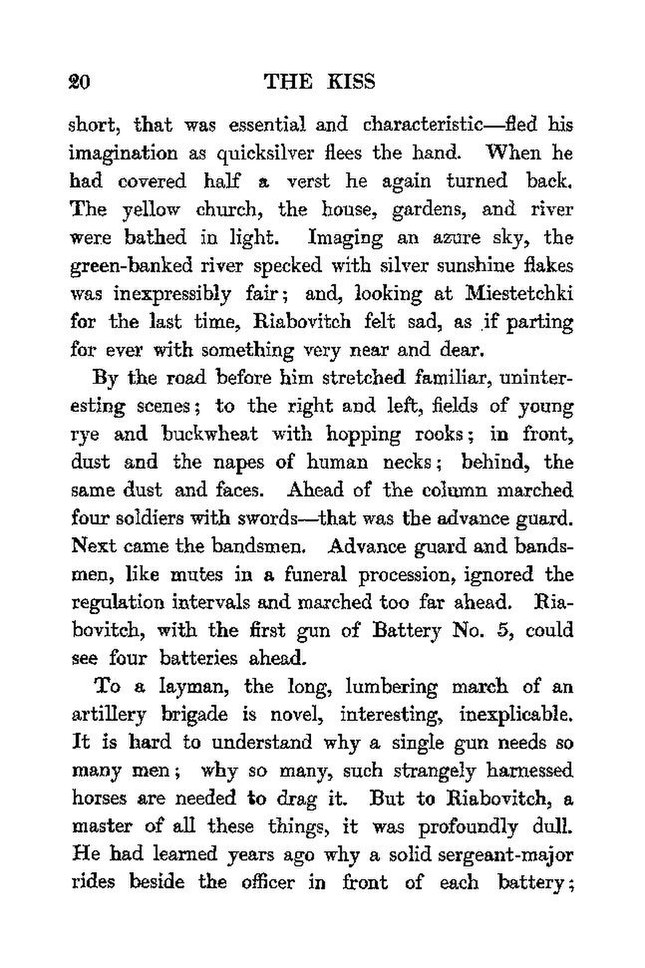short, that was essential and characteristic — fled his imagination as quicksilver flees the hand. When he had covered half a verst he again turned back. The yellow church, the house, gardens, and river were bathed in light. Imaging an azure sky, the green-banked river specked with silver sunshine flakes was inexpressibly fair; and, looking at Miestetchki for the last time, Riabovitch felt sad, as if parting for ever with something very near and dear.
By the road before him stretched familiar, uninteresting scenes; to the right and left, fields of young rye and buckwheat with hopping rooks; in front, dust and the napes of human necks; behind, the same dust and faces. Ahead of the column marched four soldiers with swords — that was the advance guard. Next came the bandsmen. Advance guard and bandsmen, like mutes in a funeral procession, ignored the regulation intervals and marched too far ahead. Riabovitch, with the first gun of Battery No. 5, could see four batteries ahead.
To a layman, the long, lumbering march of an artillery brigade is novel, interesting, inexplicable. It is hard to understand why a single gun needs so many men; why so many, such strangely harnessed horses are needed to drag it. But to Riabovitch, a master of all these things, it was profoundly dull. He had learned years' ago why a solid sergeant-major rides beside the officer in front of each battery;
